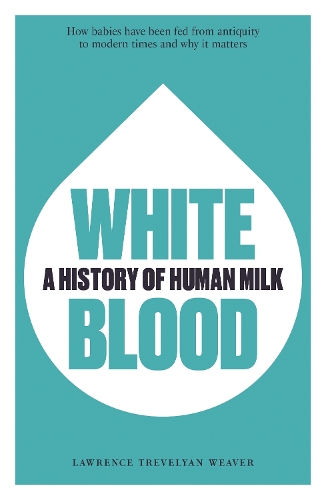
White Blood: A History of Human Milk
(Paperback)
Publishing Details
White Blood: A History of Human Milk
By (Author) Lawrence Trevelyan Weaver
Unicorn Publishing Group
Unicorn Publishing Group
15th April 2021
United Kingdom
Classifications
General
Non Fiction
649.33
Physical Properties
Paperback
280
Width 129mm, Height 198mm
Description
White Blood is a history of human milk and tells the story of how babies have been fed from antiquity to modern times and why it matters. 'Breast is Best' is the popular mantra, but there is a perennial debate about the pros and cons of 'breast and bottle'. White Blood explores this vital question, which has implications for the health and wellbeing of mothers, their young, families, communities and even countries. Starting in Ancient Greece and Rome, where human milk was thought to be blood diverted from the womb to the breast and there whitened and vivified, it lets the voices of those concerned with the care of newborn infants, and those who followed them, speak across the centuries of how they were, and should best be, nourished.
Reviews
"[Weaver] takes readers on a detailed, 2000-year journey through the biology, technology, medicalization, and truth of the distribution of human milk to babies and young children. The book reads much like a well-thought-out article in the New Yorker, cumulatively building reader interest, every turn of the page revealing more new information. . . . The volume includes a variety of visual enhancements including color photographs and medical drawings that support the surrounding content. . . . This is definitely a source not to be overlooked by readers who want a comprehensive historical depiction of human milk as the vital nutritional resource for babies worldwide. . . . Recommended." * Choice *
Author Bio
Lawrence Trevelyan Weaver is a paediatrician, nutritional scientist and gastroenterologist whose interests have turned to history. Now Emeritus Professor of Child Health and Honorary Senior Research Fellow in the Centre for the History of Medicine of the University of Glasgow, he spent much of his professional life thinking about human milk, caring for babies with feeding problems, and researching the gut disorders caused by what they were fed.
